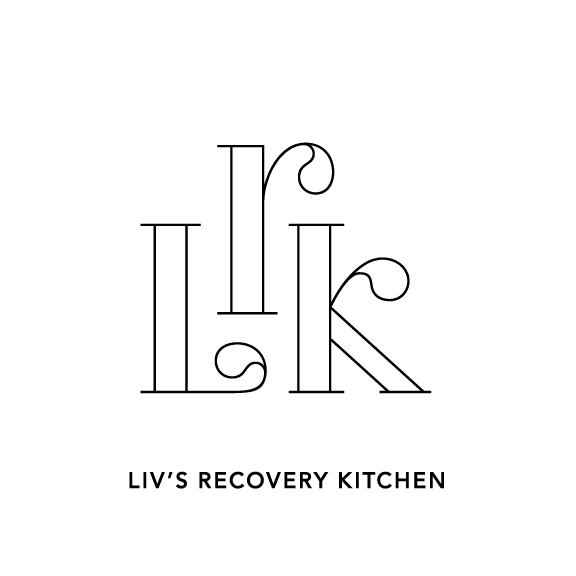Pathways of Recovery
1 in 10 Americans — an estimated 22 million — live in recovery from substance use disorders. While it’s important to celebrate our stories of recovery, it’s equally important that we not lose sight of the fact that less than 10 percent of the 21 million Americans with SUD receive treatment. We need to continue to raise awareness that we do recover as well as increase access to treatment resources, which includes highlighting all pathways of recovery.
Source: Recovery Research Institute summarizing the study by Kelly, J. F., Bergman, B. G., Hoeppner, B. B., Vilsaint, C. L., & White, W. L. (2017): Prevalence and pathways of recovery from drug and alcohol problems in the United States population: Implications for practice, research, and policy.
Pathways of recovery
A leading study showed that just over half of those who recover do so with the help of mutual-aid programs, followed by treatment, recovery support services, and medication-assisted treatments — some utilizing more than one type of service.
As defined by the Recovery Research Institute, these pathways fall into three main categories:
Clinical pathways
Non-clinical pathways
Self-managed pathways
Clinical pathways
Clinical pathways of recovery involve professional intervention from a healthcare provider, clinician, or other credentialed professional. That includes:
Clinical treatment: Medically managed inpatient treatment, clinically managed residential services, intensive outpatient and partial hospitalization, and outpatient services.
Pharmacotherapy and medication-assisted treatment: Medications like buprenorphine, methadone, naloxone, acamprosate, and naltrexone are used to withdrawal symptoms, reduce alcohol and drug cravings, and some prevent return to use by blocking the effects of certain drugs.
Behavioral therapy: Acceptance and Commitment Therapy, Cognitive Behavioral Therapy, Motivational Interviewing, behavioral couples therapy, and family therapy.
Holistic therapies: Also known as integrative health, this treatment integrates conventional and alternative therapies to treat the person holistically, promoting overall wellness. Therapies include: acupuncture, hypnosis, aromatherapy, yoga, meditation and mindfulness, reflexology, reiki, massage, art, dance and music therapies, and animal-assisted therapies.
Non-clinical pathways of recovery
Non-clinical pathways represent just over half of all preferred pathways of recovery. They include peer-based recovery supports, recovery community centers, educationally based recovery services, faith- and culture-based recovery supports, and recovery housing. Many of these pathways and recovery supports are offered through Recovery Community Organizations.
PEER-LED SUPPORT GROUPS
There are a range of peer-based support services, encompassing mutual-aid groups, peer recovery coaching, and peer-based fitness programs. And The Council on Accreditation of Peer Recovery Support Services (CAPRSS) accredits organizations that provide peer recovery support services.
Many of these supportive groups focus on sharing recovery-related experiences and most often have a peer-led program of recovery, or educational groups. The organizations range in philosophies and principles; some are spiritual, others religious, some are secular and evidence-based, and others involve fitness. They include:
Recovery Dharma (a splinter group from Refuge Recovery, also based on Buddhism)
SMART Recovery (evidence-based and secular)
Alcoholics Anonymous (12-step-based)
Cocaine Anonymous (12-step-based)
Heroin Anonymous (12-step-based)
Narcotics Anonymous (12-step-based)
Women for Sobriety (secular)
For LGBTQ+-specific resources, read our recent blog, and for non-12-step resources, click here.
FAITH- AND CULTURE-BASED RECOVERY SUPPORT
Like peer support groups, faith- and culture-based support groups are geared toward people who practice certain faiths or identify culturally with the values of certain organizations. They allow the person to integrate their beliefs into their recovery. Formally organized groups include:
In addition to these groups, most churches and other faith-based communities have specific support within their communities that can be accessed through a pastor, priest, or mentor.
EDUCATION-BASED RECOVERY SUPPORT
Focused on both high schools and colleges, two main associations are dedicated to providing a supportive recovery environment for their students: the Association of Recovery in Higher Education represents collegiate recovery programs across the US, and the Association of Recovery High Schools represents students globally.
RECOVERY HOUSING
Often referred to as Oxford Houses, halfway houses, or sober living homes, these facilities provide a safe, clean, and supportive environment for people transitioning out of formal treatment. Individuals live in a supportive peer environment and may be required to adhere to certain rules, such as regular drug testing, to stay at the residence. You can find houses that have been certified through the National Alliance of Recovery Residences.
RECOVERY COMMUNITY CENTERS
RCOs are hubs within the recovery community. Within these dedicated spaces people in recovery can find a network of helpful recovery support services. These could include peer-based meetings, peer mentor programs, referrals to support services, and social events. The Association of Recovery Community Organizations lists the national network of RCOs helping them to provide a unified voice advocating for people in recovery.
EMPLOYMENT-BASED RECOVERY SUPPORT
Usually larger organizations offer employee assistance programs to help support and improve employee wellness. That includes support and resources for employees with substance use disorder.
There are also organizations that help individuals in recovery facing certain challenges — like an incomplete educational background or a prior criminal record — to achieve employment. One organization that can help provide these services is Recovery Through Entrepreneurship.
Self-managed pathways
Self-managed pathways of recovery simply means that there is no formal process of recovery or engagement in professional services. Individuals choose to create their own path of recovery.
This blog was originally featured on Faces & Voice of Recovery blog.

